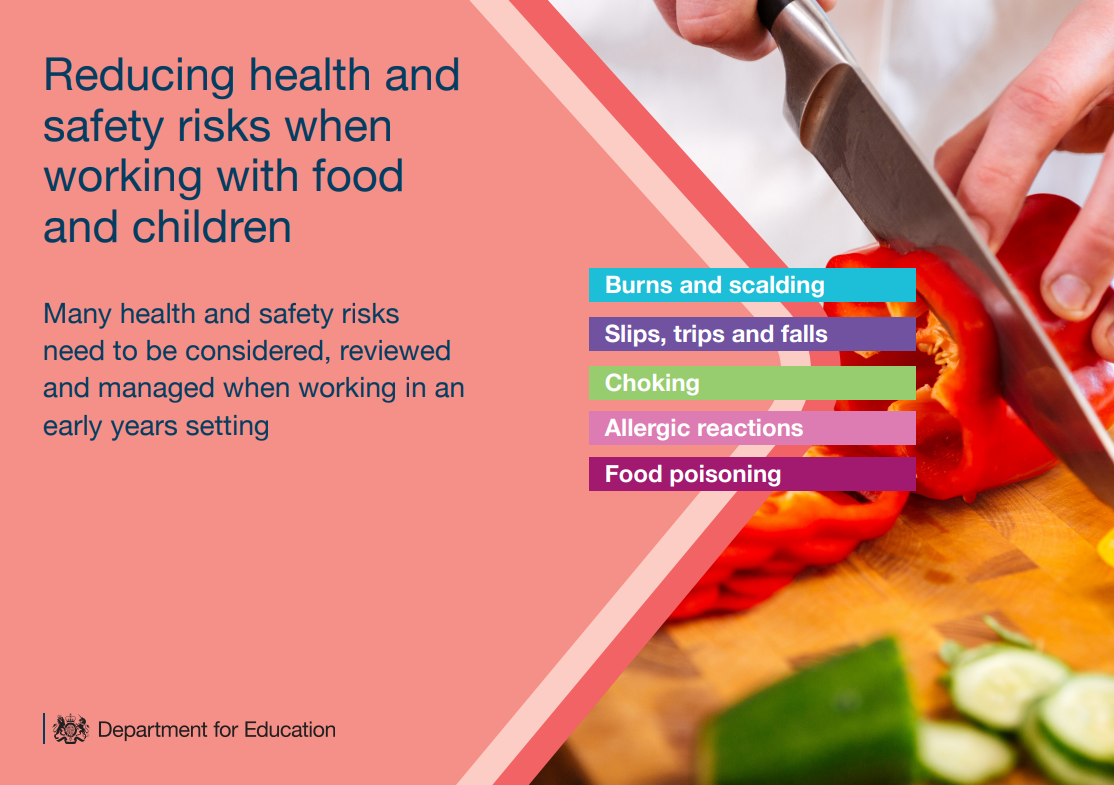Planning food activities with children
How to help children have fun and learn about food.
Planning food activities with children
Cooking is a great experience for young children and helps to create a positive relationship with food.
Some children have limited opportunities to cook or learn about food at home. You can plan fun activities for children in your own setting and also suggest activities they can do with their parents and carers at home.
The benefits of food activities
There are lots of benefits of providing fun food activities for children:
- confidence – children are more likely to try new foods and widen their diet
- language – children learn new vocabulary and words from different languages
- physical – cooking helps children practice physical skills, such as gross and fine motor skills, which help muscle development and hand-eye coordination
- emotional – children can feel competent and proud of themselves when cooking
- relationships – cooking activities can support team work and relationships between children and adults
- mathematics – children will learn numbers through counting and measuring
- science – children can observe how different ingredients mix together and the effects of heat and cooling
- understanding the world around them – including where spices come from, how vegetables are grown and sustainability
- diversity and culture – children can learn where foods come from and how different cultures use different cooking techniques
Quick and easy ideas
You can:
- make bread
- discover exotic fruit
- explore your local market
- grow herbs or vegetables indoors or outdoors
Plan ahead when you’re doing food activities with children. Here’s a template you can use to prepare your next activity.
Best practices to follow
You can minimise health and safety risks with careful planning and by following a risk assessment.
Remember to:
- check there is enough space
- make sure the floor is clean and dry
- follow food safety and hygiene rules
- make sure food and water are fresh
- think about the allergies of everyone in the setting – not just those taking part
- make sure the activity and tools are age-appropriate
Reducing health and safety risks when working with children and food.
Find out more about safety and hygiene for children’s food from the NHS. Read advice from the Food Standards Agency on safe food practices for nurseries and childminders.
Flour
A risk people may not be aware of is flour. Flour is a raw food, which means it hasn’t been treated to kill any germs which might be in it like E. coli, which are found in the environment. You can get ill if you eat unbaked dough or batter made with flour containing germs.
This includes dough or batter for:
- cookies and biscuits
- cakes
- pie crusts
- tortillas
- pizza
- pancakes
- crafts made with raw flour, such as homemade play dough or holiday ornaments.
How to involve parents and carers
When parents and carers cook with their children it helps strengthen a child’s relationship with food. Parents might find it challenging to cook with their children. This could be because of a shortage of time or money, a lack of cooking knowledge, a lack of space to cook or a fear of getting their home messy.
You can support parents by suggesting quick and budget-friendly recipes to cook with their children. You can also invite parents to take part in a cooking activity or ‘cook-along’ in your setting.
Key takeaways
- Having fun with cooking can help children develop a healthy relationship with food. It is also a great learning experience
- Providing cooking activities to do at home can help children to bond with parents and carers
- If parents struggle to cook with their children, suggest quick recipes and activities to make it easier for them
Further information
- Guidance on how to clean equipment and surfaces from the Food Standards Agency
- Guidance on how to prevent cross-contamination from the Food Standards Agency


